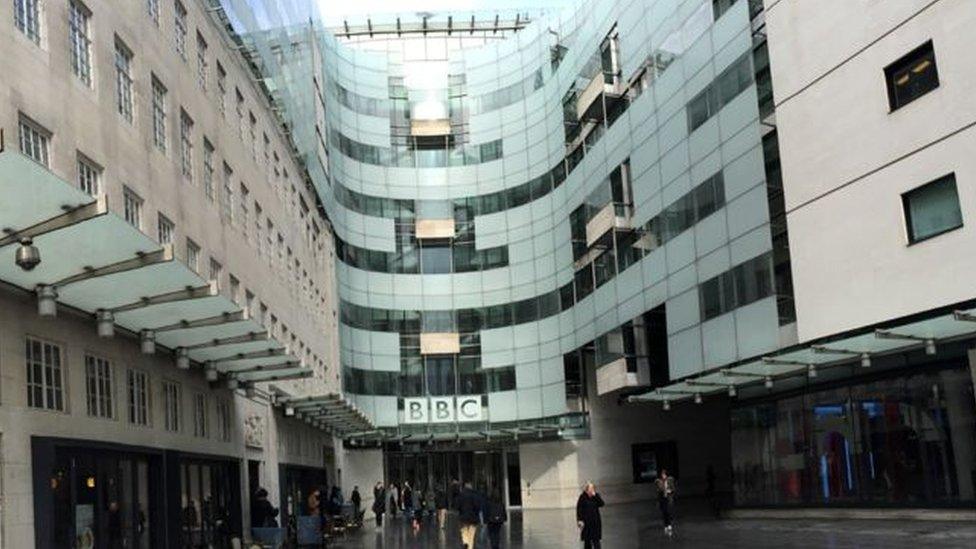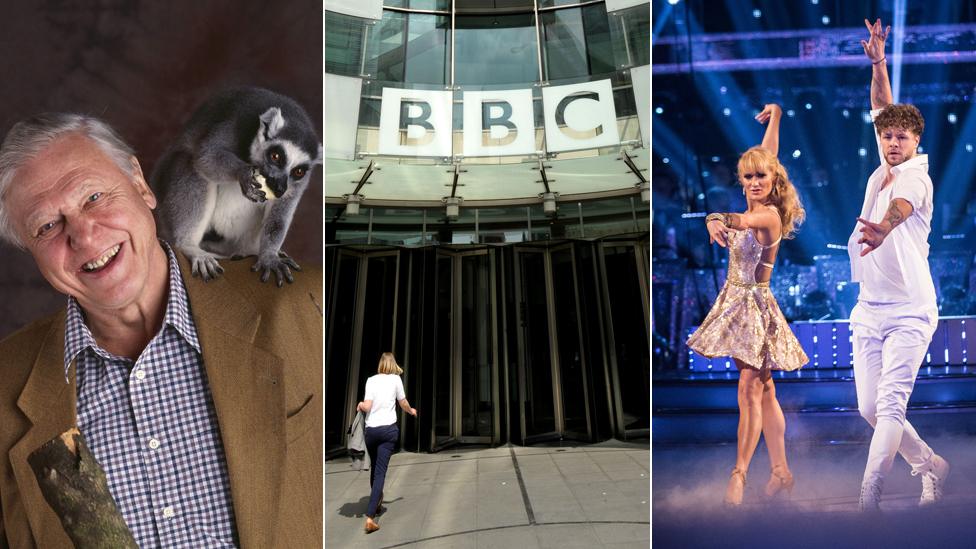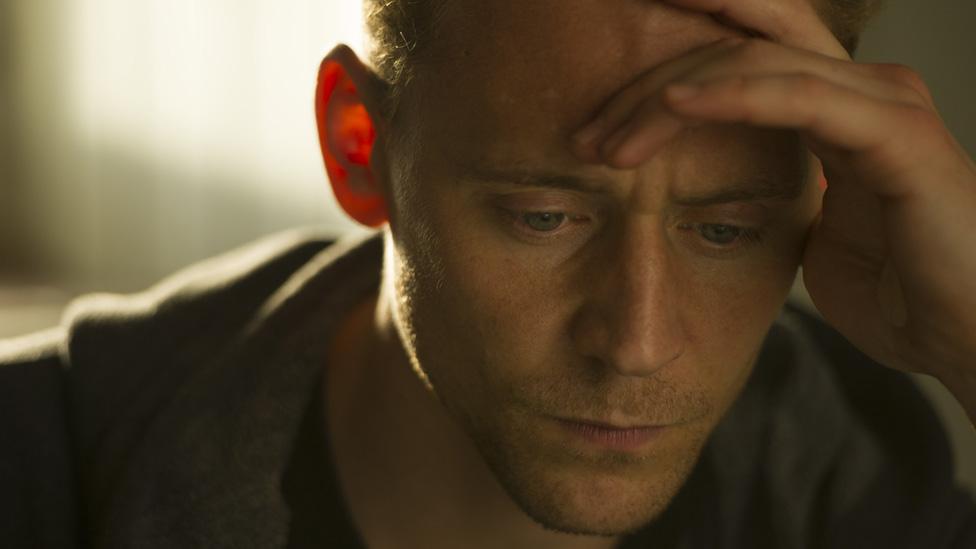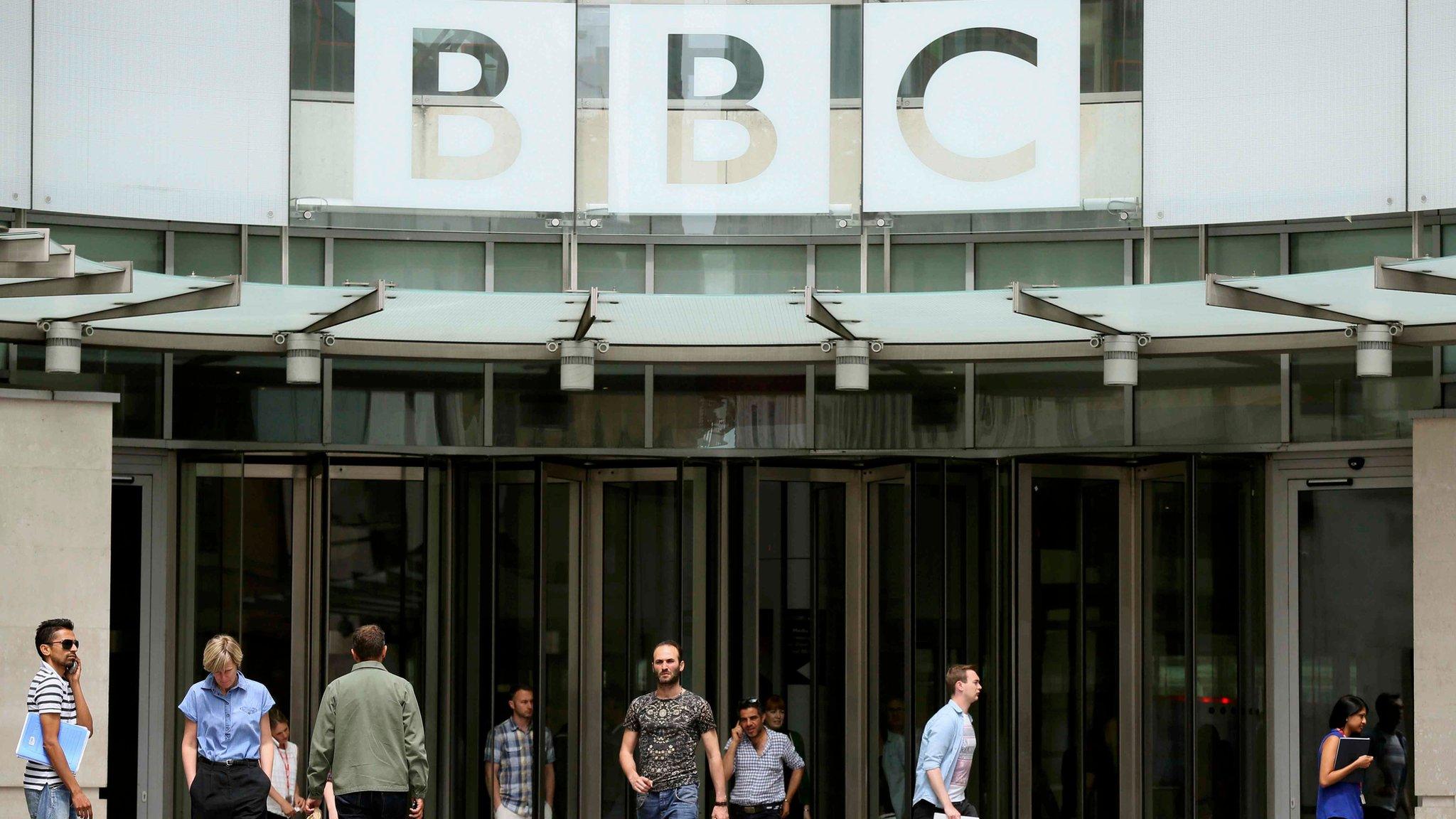Q&A: White Paper on the BBC's future
- Published

Several key issues are at stake for the BBC's future including just how the corporation will be run and how much money it will have to spend on programming
The government has published its White Paper, outlining its proposals for the renewal of the BBC's Royal Charter.
Culture Secretary John Whittingdale has set out a new regime for the broadcaster in his plans for the next 11 years.
What is the Royal Charter?
The Royal Charter is an agreement with the government over what the BBC intends to do over the next 11 years.
It is a general document outlining how the corporation is funded, how it is run, who holds it to account and what its broad objectives are.
The process ends with a meeting of the Privy Council at Buckingham Palace.
What is the BBC White Paper?
The White Paper is the government's proposals for the Royal Charter.
It will probably be debated in Parliament but there is no vote by MPs or peers.
The final shape of the Royal Charter is determined by the culture secretary.
What's at stake?
There are three main issues:
Money: will the licence fee continue and how much will it be?
Governance: who runs the BBC?
Distinctiveness
What might it mean for the BBC?
The BBC is anxious to have a clear majority of its board appointed by the BBC in order to fend off accusations that it is a government or state broadcaster.
Under the existing system, members of the BBC Trust - which oversees the corporation - are appointed by the Queen on advice from the government. The BBC Trust then appoints members of the BBC Executive, which manages the BBC.
The BBC Trust and the BBC Executive are to be replaced by a new "unitary board".
Mr Whittingdale's plan says the BBC will appoint "most of these board members", with others "selected through an open public appointments process led by government".
Is there a knock-on effect for Channel 4?
The question of whether Channel 4 is privatised is a separate topic, but the BBC and Channel 4 are part of a wider ecology of public service broadcasting.
How will it affect the audience?
The question of how "distinctiveness" is enforced may affect the balance of what sort of programmes appear.
The government previously expressed concern about shows chasing ratings, but in his speech on the White Paper Mr Whittingdale said he was "emphatically not saying that the BBC should not be popular".
The White Paper says all employees and freelancers - including star names - who earn more than £450,000 will be named, although salaries will only be revealed in "broad bands". Managers on more than £150,000 already have salary details published.
Within the BBC, there is a concern that publishing stars' earnings could put some off working for the BBC, as well as making it easier for rival broadcasters to poach stars.
What happens next?
A debate in the autumn, then the drafting and signing of the new charter for the next 11 years.
Why 11?
The BBC was anxious to remove the negotiations from coinciding with elections - now fixed to take place every five years.
Anything else we know?
See our guide to the key points in the White Paper.
- Published12 May 2016

- Published1 May 2016

- Published6 July 2015
